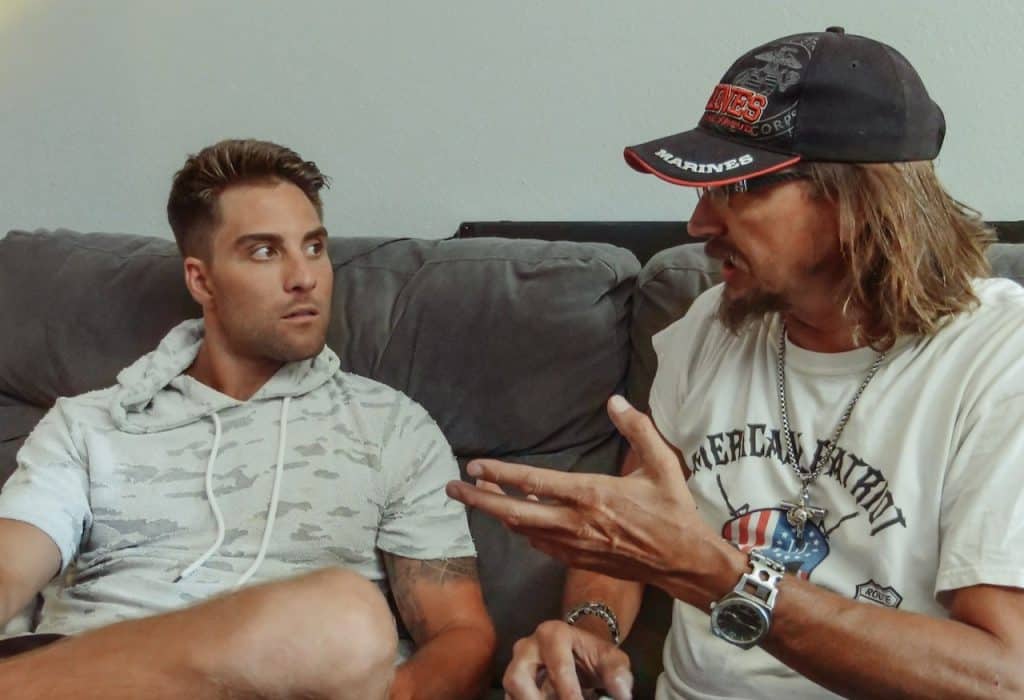Dealing with an angry 23-year-old son can be an overwhelming experience for any parent. The outbursts, the tension, and the overall emotional upheaval can leave you feeling helpless and frustrated. However, there are ways to manage the situation and support your son in developing healthier ways to manage his emotions.
Begin by trying to understand the root cause of his anger and create a safe environment for open communication. Encourage him to introspect and reflect on his behavior. You can also assist him in recognizing triggers that may provoke his outbursts and consider seeking professional assistance if necessary.
In this article, we will equip you with effective strategies to support your 23-year-old son who is struggling with anger and frustration. By implementing these strategies, you can help your son develop healthier ways of coping with his emotions, while also strengthening your relationship with him.
15 Ways to Deal with an Angry 23-Year-Old Son
1. Understand the Source of Anger
The first step in dealing with an angry 23-year-old son is to understand the source of his anger. Many factors can contribute to anger, including stress, anxiety, depression, unresolved childhood trauma, or relationship issues.
Approaching your son with empathy and understanding can go a long way in helping him manage his emotions better. Once you understand the source of his anger, you can help him identify his triggers and develop coping strategies that work best for him.
2. Create a Safe Space for Communication

Creating a safe and secure environment for communication is crucial when dealing with an angry son. Your son needs to feel heard, understood, and validated, and it’s crucial to create an atmosphere where he feels comfortable expressing his emotions without fear of judgment or punishment.
3. Encourage Self-Reflection
Encouraging your son to engage in self-reflection can be a powerful tool in helping him understand his emotions and develop strategies for managing his anger. Reflective practices such as journaling, meditation, or deep breathing exercises can help your son identify any negative thought patterns and work towards changing them.
4. Set Boundaries and Consequences
Setting boundaries and consequences can be a challenging but effective way to manage your son’s behavior. Be clear about your expectations and the consequences of not meeting them. It’s essential to follow through with consequences consistently to establish a sense of accountability and reinforce the importance of healthy behavior.
5. Consider Family Therapy
Family therapy can be an effective way to address relationship issues and support your son in managing his emotions. Consider seeking the help of a qualified therapist who can work with your family to develop strategies for improving communication, managing conflict, and addressing underlying issues that may be contributing to your son’s anger.
6. Focus on Positive Communication
Focusing on positive communication can be a game-changer when it comes to managing conflict and improving your relationship with your son. Using “I” statements to express your concerns, and avoiding criticism or blame, can help your son feel heard and understood.
7. Encourage Physical Activity
Physical activity can be a powerful tool in managing your son’s emotions. Encouraging him to engage in physical activities he enjoys, such as hiking, jogging, or playing sports, can help him reduce stress and anxiety, improve his mood, and promote better sleep.
Even short bursts of exercise, such as a quick walk or run, can be effective in releasing pent-up emotions and improving his overall well-being.
8. Identify Triggers and Warning Signs
Identifying your son’s triggers and warning signs can help you anticipate and prevent outbursts of anger. Encourage your son to be aware of his triggers and warning signs, and work with him to develop strategies for managing his emotions before they escalate.
9. Help Him Develop Coping Strategies
Helping your son develop coping strategies can be an effective way to manage his anger. Encourage him to engage in activities that promote relaxation and stress reduction, such as deep breathing exercises, yoga, or listening to calming music. By developing a list of coping strategies he can turn to when he feels angry or overwhelmed, he can manage his emotions more effectively.
10. Be Patient and Consistent
Dealing with an angry 23-year-old son can be a long and challenging journey, and it’s important to be patient and consistent in your approach. Don’t expect immediate results, and be consistent in your efforts to support your son in managing his emotions.
11. Empower Him to Seek Help

Empowering your son to seek help can be an effective way to support him in managing his emotions. Encourage him to seek the help of a qualified mental health professional who can provide him with the tools and support he needs to manage his anger and address underlying issues.
12. Be a Positive Role Model
Modeling healthy coping strategies, positive communication, and empathy in your interactions with your son and others can have a significant impact on his emotional well-being. Your behavior serves as a guide for your son, so it’s essential to model the behavior you want to see in him.
13. Celebrate Successes
Celebrating successes, no matter how small, is another effective way to reinforce positive behaviors and encourage your son to continue making progress. Acknowledge and celebrate your son’s successes, and help him build a sense of confidence and self-esteem. By recognizing his achievements, you can motivate him to continue making positive changes in his life.
14. Address Substance Use and Mental Health Issues
Substance use and mental health issues can contribute to anger and aggression in young adults. If you suspect your son is struggling with substance use or mental health issues, seek the help of a qualified professional who can provide him with the support he needs to address these issues.
15. Seek Support for Yourself
Dealing with an angry 23-year-old son can take a toll on your own mental and emotional health. Seek the support of friends, family, or a qualified therapist who can provide you with the tools and support you need to manage your own emotions and navigate this challenging situation. By taking care of yourself, you can better support your son and strengthen your relationship with him.
Final Thoughts
Dealing with an angry 23-year-old son can be a difficult and emotional journey for any parent. However, with patience, understanding, and the right strategies, you can support your son in managing his emotions and improving your relationship.
Remember, this journey takes time, effort, and dedication, but with these strategies and a little perseverance, you and your son can navigate this challenging situation and emerge stronger and more resilient than ever before.